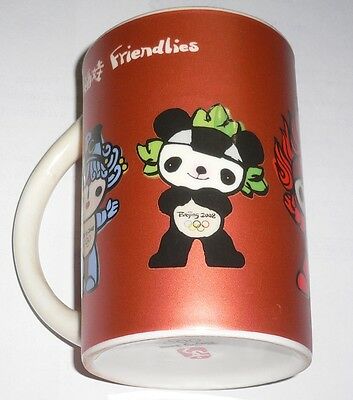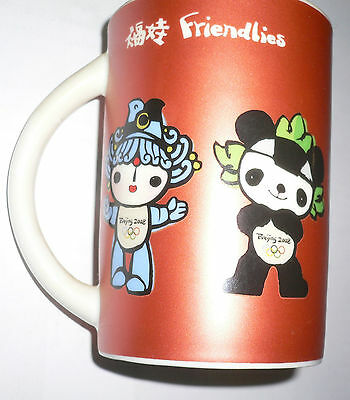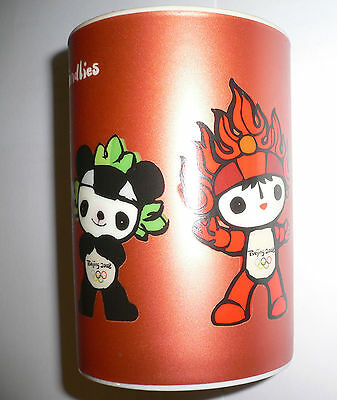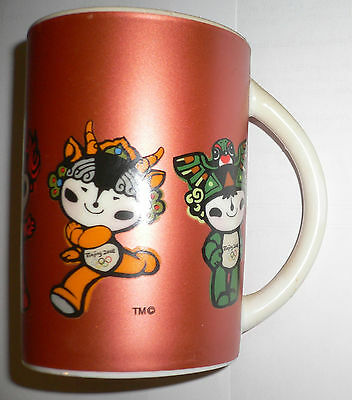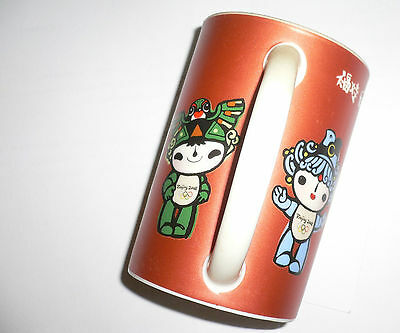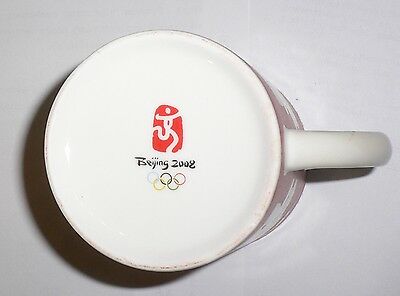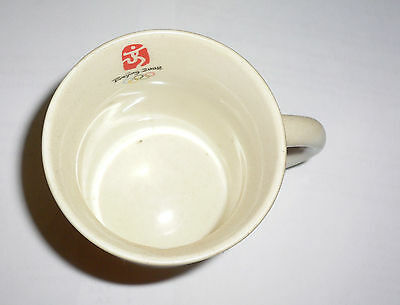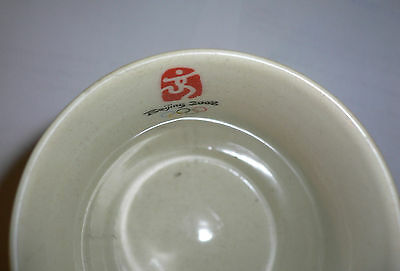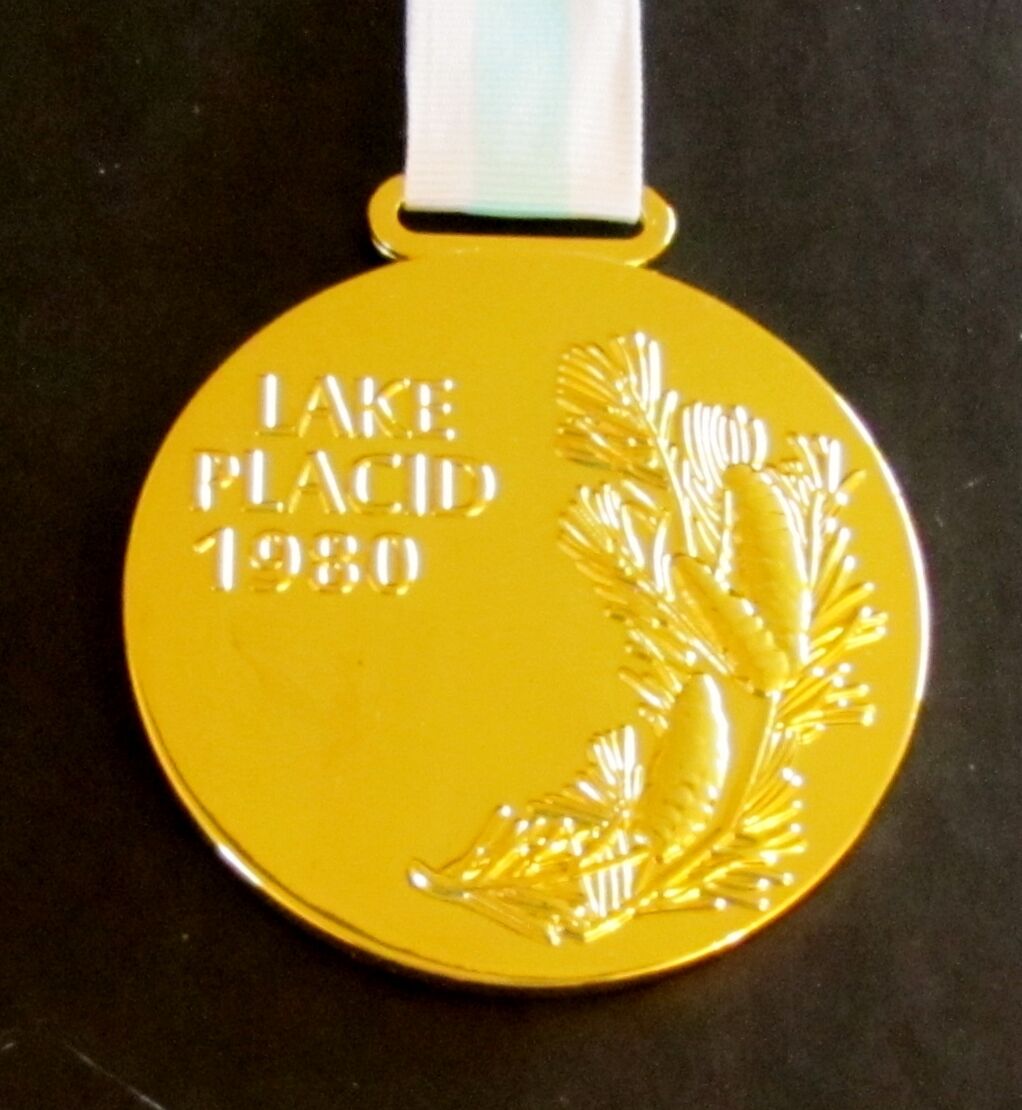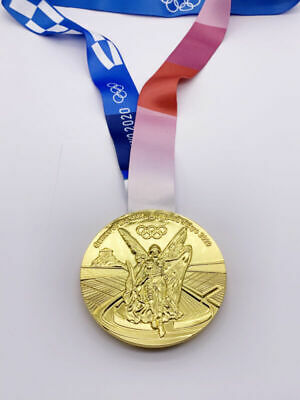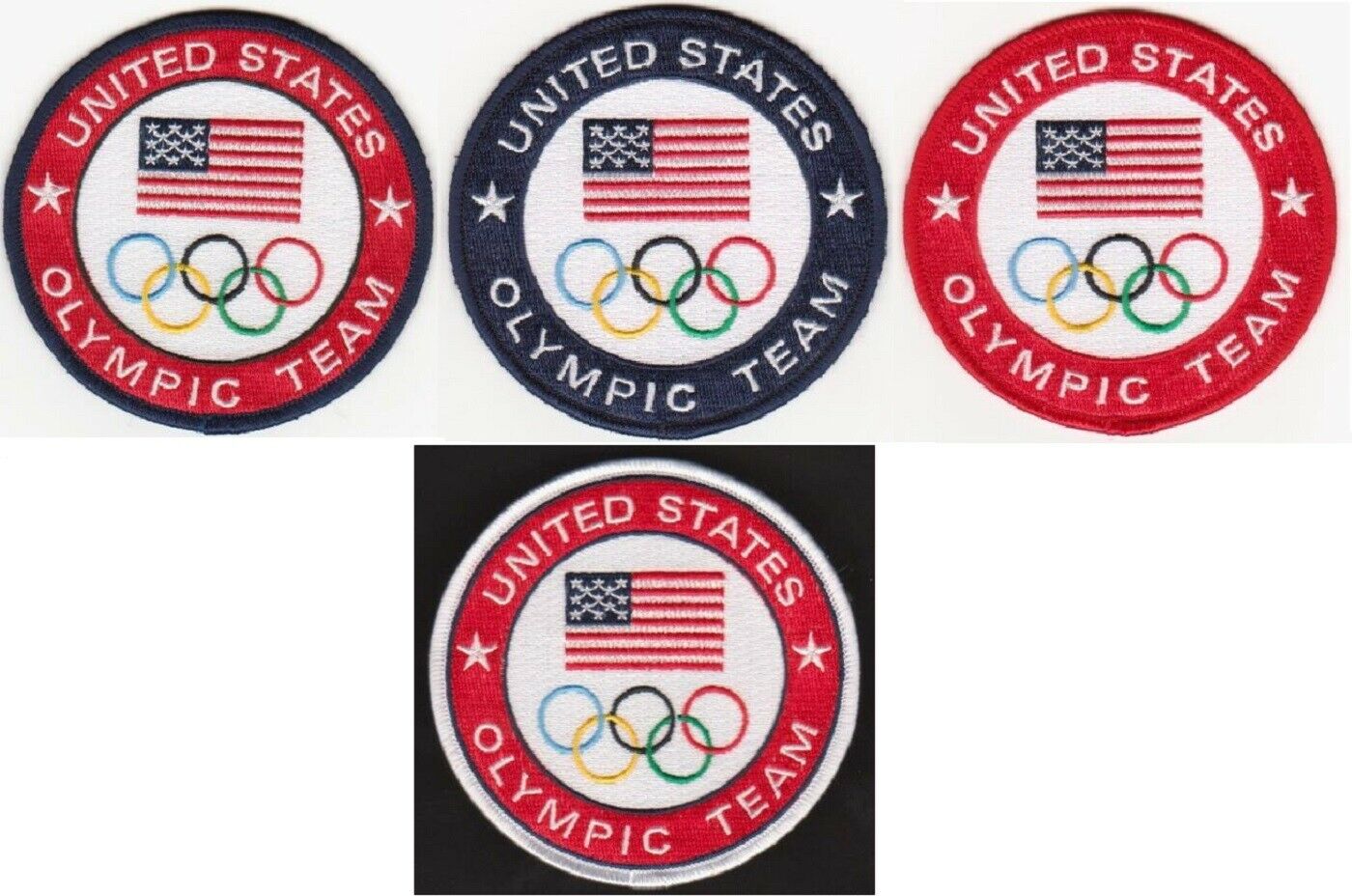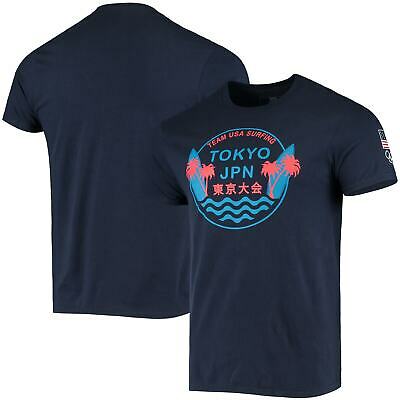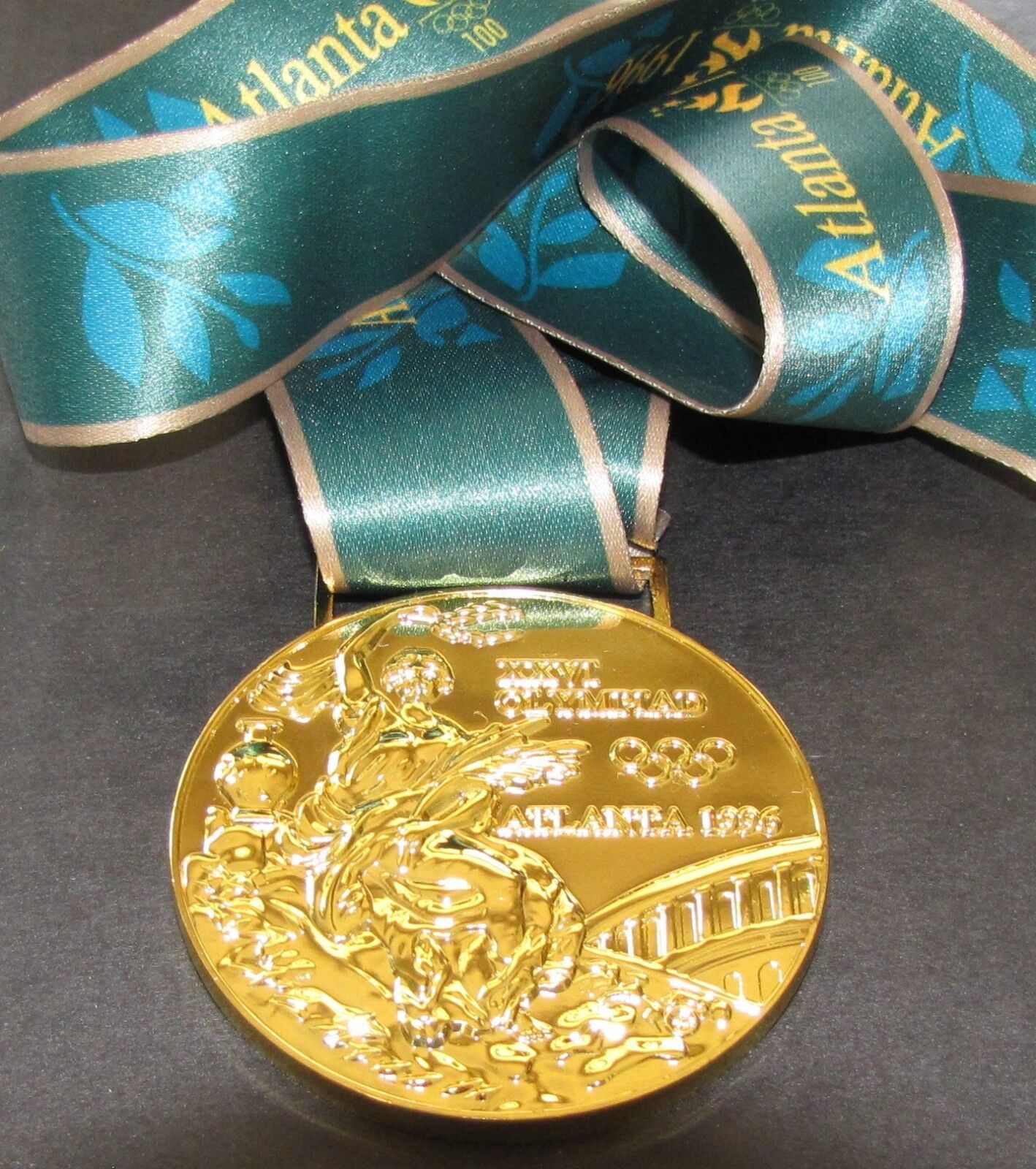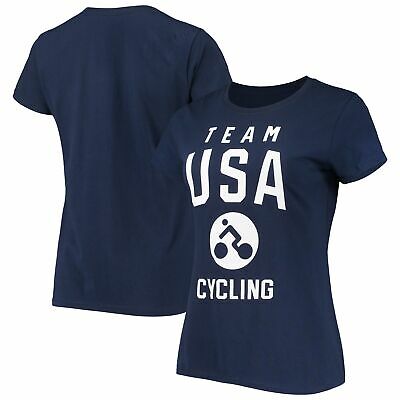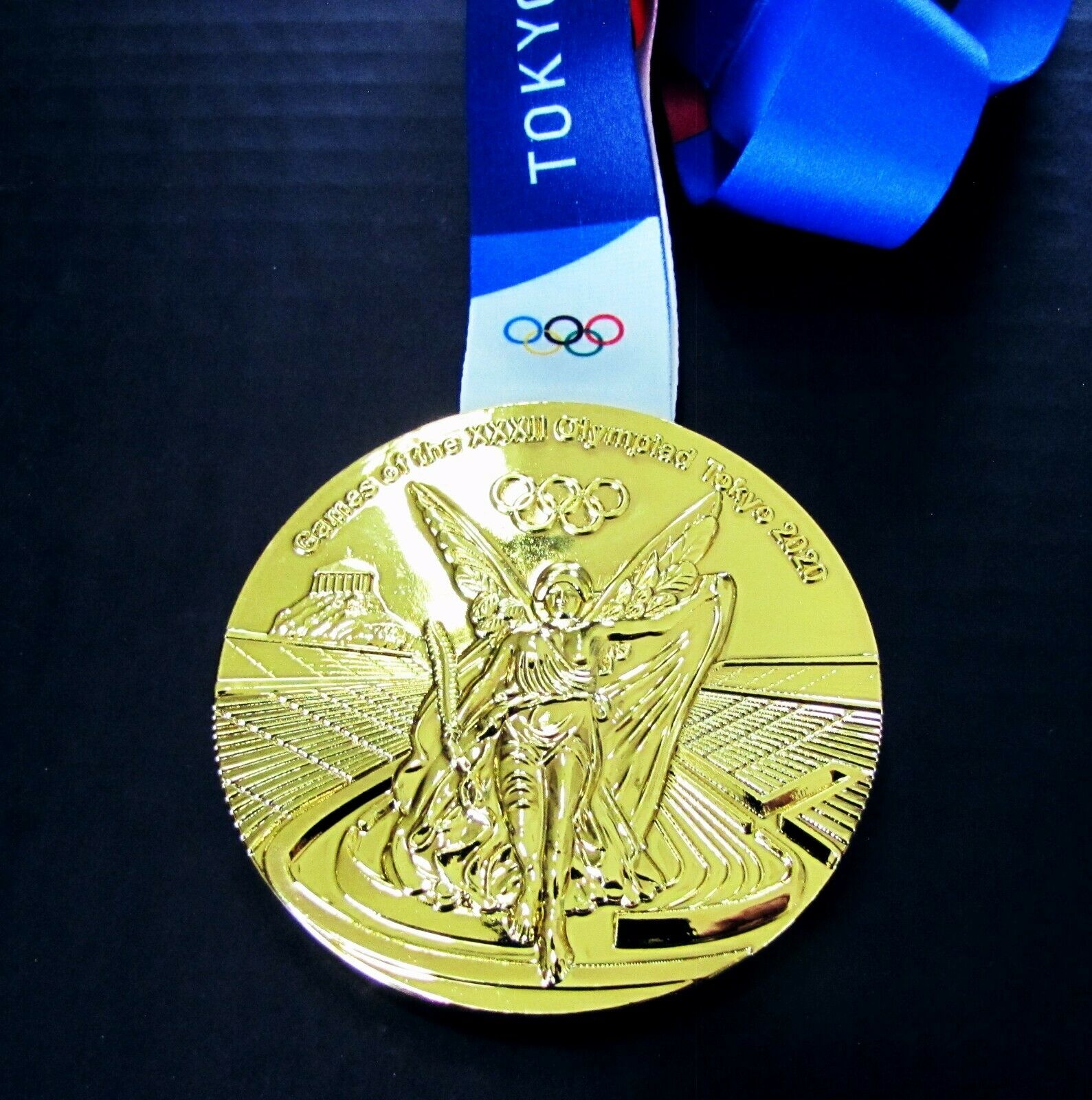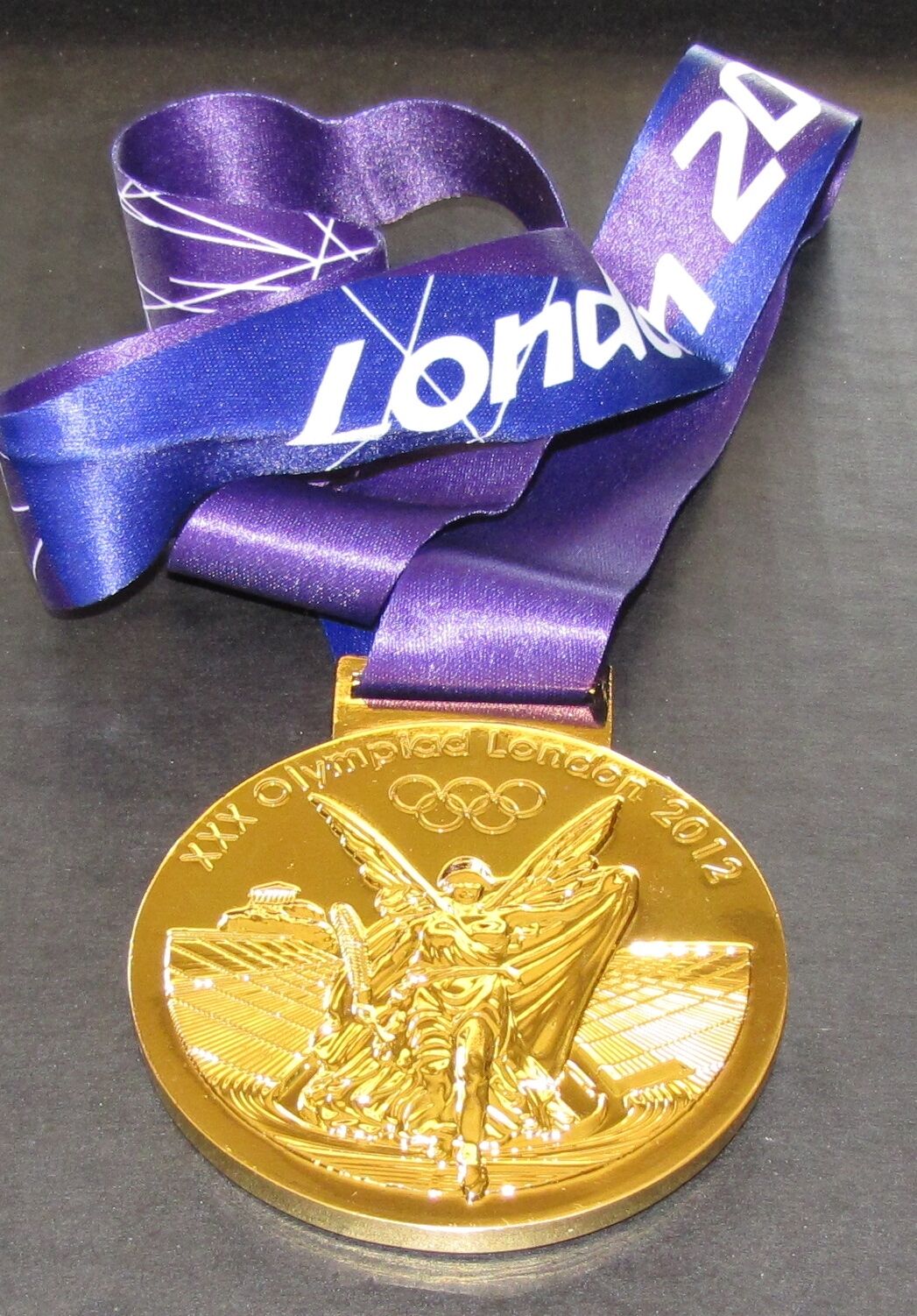-40%
2008 Olympic Games Beijing Coffee Cup/Mug with The Official Mascot Fuwa No2
$ 10.29
- Description
- Size Guide
Description
<img src="HTTPS://ti2.auctiva.com/web/aswCredit.gif" border="0"><br><a href="HTTPS://www.auctiva.com/?how=scLnk0" ><img src="HTTPS://ti2.auctiva.com/images/sc1line0.gif" border="0"></a>Description:
2008 Olympic Games Beijing
ORIGINAL
Olympic Games Beijing Cup/Mug 2008
with The Official Mascot Fuwa
The
Fuwa
(
Chinese
:
福娃
;
pinyin
:
Fúwá
; literally "good-luck dolls", also known as "Friendlies"), were the
mascots
of the
2008 Summer Olympics
in
Beijing
. The designs were created by
Han Meilin
, a famous Chinese artist.
[1]
The designs were publicly announced by the National Society of Chinese Classic Literature Studies on 11 November 2005 at an event marking the 1000th day before the opening of the games.
HTTPS://en.wikipedia.org/wiki/Fuwa
Is a coffee mug / tea cup commemorating the 2008 Beijing Summer Olympic Games.
Made in China
The Official Mascots of the Beijing 2008 Olympic Games
Like the Five Olympic Rings from which they draw their color and inspiration, Fuwa will serve as the Official Mascots of Beijing 2008 Olympic Games, carrying a message of friendship and peace -- and good wishes from China -- to children all over the world.
Designed to express the playful qualities of five little children who form an intimate circle of friends, Fuwa also embody the natural characteristics of four of China's most popular animals -- the Fish, the Panda, the Tibetan Antelope, the Swallow -- and the Olympic Flame.
Each of Fuwa has a rhyming two-syllable name -- a traditional way of expressing affection for children in China. Beibei is the Fish, Jingjing is the Panda, Huanhuan is the Olympic Flame, Yingying is the Tibetan Antelope and Nini is the Swallow.
When you put their names together -- Bei Jing Huan Ying Ni -- they say "Welcome to Beijing," offering a warm invitation that reflects the mission of Fuwa as young ambassadors for the Olympic Games.
Fuwa also embody both the landscape and the dreams and aspirations of people from every part of the vast country of China. In their origins and their headpieces, you can see the five elements of nature -- the sea, forest, fire, earth and sky -- all stylistically rendered in ways that represent the deep traditional influences of Chinese folk art and ornamentation.
Spreading Traditional Chinese Good Wishes Wherever They Go
In the ancient culture of China, there is a grand tradition of spreading good wishes through signs and symbols. Each of Fuwa symbolizes a different blessing -- and will honor this tradition by carrying their good wishes to the children of the world. Prosperity, happiness, passion, health and good luck will be spread to every continent as Fuwa carry their invitation to Beijing 2008 to every part of the globe.
At the heart of their mission -- and through all of their work -- Fuwa will seek to unite the world in peace and friendship through the Olympic spirit. Dedicated to helping Beijing 2008 spread its theme of One World, One Dream to every continent, Fuwa reflect the deep desire of the Chinese people to reach out to the world in friendship through the Games -- and to invite every man, woman and child to take part in the great celebration of human solidarity that China will host in the light of the flame in 2008.
In China's traditional culture and art, the fish and water designs are symbols of prosperity and harvest. And so Beibei carries the blessing of prosperity. A fish is also a symbol of surplus in Chinese culture, another measure of a good year and a good life. The ornamental lines of the water-wave designs are taken from well-known Chinese paintings of the past. Among Fuwa, Beibei is known to be gentle and pure. Strong in water sports, she reflects the blue Olympic ring.
Jingjing makes children smile -- and that's why he brings the blessing of happiness wherever he goes. You can see his joy in the charming naivety of his dancing pose and the lovely wave of his black and white fur. As a national treasure and a protected species, pandas are adored by people everywhere. The lotus designs in Jingjing's headdress, which are inspired by the porcelain paintings of the Song Dynasty (A.D.960-1234), symbolize the lush forest and the harmonious relationship between man and nature. Jingjing was chosen to represent our desire to protect nature's gifts -- and to preserve the beauty of nature for all generations. Jingjing is charmingly naïve and optimistic. He is an athlete noted for strength who represents the black Olympic ring.
In the intimate circle of Fuwa, Huanhuan is the big brother. He is a child of fire, symbolizing the Olympic Flame and the passion of sport -- and passion is the blessing he bestows. Huanhuan stands in the center of Fuwa as the core embodiment of the Olympic spirit. And while he inspires all with the passion to run faster, jump higher and be stronger, he is also open and inviting. Wherever the light of Huanhuan shines, the inviting warmth of Beijing 2008 -- and the wishful blessings of the Chinese people -- can be felt. The fiery designs of his head ornament are drawn from the famed Dunhuang murals -- with just a touch of China's traditional lucky designs. Huanhuan is outgoing and enthusiastic. He excels at all the ball games and represents the red Olympic ring.
Like all antelopes, Yingying is fast and agile and can swiftly cover great stretches of land as he races across the earth. A symbol of the vastness of China's landscape, the antelope carries the blessing of health, the strength of body that comes from harmony with nature. Yingying's flying pose captures the essence of a species unique to the Qinghai-Tibet Plateau, one of the first animals put under protection in China. The selection of the Tibetan Antelope reflects Beijing's commitment to a Green Olympics. His head ornament incorporates several decorative styles from the Qinghai-Tibet and Sinkiang cultures and the ethnic design traditions of Western China. Strong in track and field events, Yingying is a quick-witted and agile boy who represents the yellow Olympic ring.
Every spring and summer, the children of Beijing have flown beautiful kites on the currents of wind that blow through the capital. Among the kite designs, the golden-winged swallow is traditionally one of the most popular. Nini's figure is drawn from this grand tradition of flying designs. Her golden wings symbolize the infinite sky and spread good-luck as a blessing wherever she flies. Swallow is also pronounced "yan" in Chinese, and Yanjing is what Beijing was called as an ancient capital city. Among Fuwa, Nini is as innocent and joyful as a swallow. She is strong in gymnastics and represents the green Olympic ring.
Beautiful condition.
Please take a look at the pictures and feel free to message me any questions before bidding.
Fuwa
Name
Beibei
(贝贝)
Jingjing
(晶晶)
Huanhuan
(欢欢)
Yingying
(迎迎)
Nini
(妮妮)
Gender
Female
Male
Male
Male
Female
Representing Continent
Europe
Africa
America
Asia
Oceania
Picture
Cultural inspiration
Traditional
Chinese New Year
decorative picture of lotus and fish;
fish
design from
Neolithic
artifacts.
Giant panda
;
Song Dynasty
lotus
-shaped
porcelain
.
Olympic flame
; Fire design from the
Mogao Grottoes
.
Tibetan antelope
,
Tibetan
and
Xinjiang
ethnic costumes.
Swift
, a sort of swallow; Beijing's
Sand Martin
kite
.
Olympic Ring
Blue
Black
Red
Orange
Green
Represented Element
[5]
Sea
Forest
Fire
Earth
Sky
Actual Fengshui Element
[6]
Water
Wood
Fire
Earth
Metal
Personality
Friendly, leader
Honest, optimistic
Extrovert, enthusiastic
Lively, independent
Just, kind
Represented ideal
Prosperity
Happiness
Passion
Health
Good fortune
Represented sport
aquatic sports
weightlifting
,
judo
, etc.
ball sports
/
racquet sports
track and field
gymnastics
Notes
In traditional Chinese culture, the fish represents prosperity, as the character for fish (鱼 / 魚) sounds the same as that for surplus (余 / 餘). The "carp leaping over the dragon gate" is a traditional allegory of following one's dreams and achieving them. The pattern from Beibei's headgear comes from artifacts unearthed at
Banpo
, site of a Neolithic village of the
Yangshao culture
.
As an
endangered species
, the panda is both a national symbol of China and an international symbol of
environmentalism
. Jingjing's forest origins also symbolize the harmonious coexistence of humankind and nature.
Huanhuan represents the passion of sports, the Olympic spirit of "faster, higher, stronger", and the passion of the Beijing Olympics. Huanhuan's headgear comes from a
fire
design in the
Mogao Caves
, the best known of the Chinese Buddhist
grottoes
.
The
Tibetan antelope
is an
endangered species
native to the
Tibetan Plateau
, known for its swiftness. Yingying's headgear incorporates elements of
Tibetan
and
Xinjiang
ethnic costumes.
The swallow is a messenger of spring and happiness in Chinese culture, and is seen as a symbol of good fortune. The Chinese character for swallow (燕) is also used in Yanjing (燕京), an old name for Beijing; thus the swallow alludes to Beijing. Nini's headgear uses the design of Beijing's
Sand Martin
kites
, which are colourful cross-shaped kites modeled after swallows.
VERY NICE/VERY COLLECTABLE
SHIPPING AND HANDLING:
The standard registration & insurance air mail to worldwide is USD 25.50
Worldwide Shipping
COMBINE SHIPPING:
Combined shipment can save your money, please contact us to reduce the shipping fee before your payment.
Courier service is available on request.
Additional charges will be on your account.
We will not be responsible for packages lost/ damage in the mail.
PLEASE READ & UNDERSTAND OUR TERMS AND CONDITIONS BEFORE BIDDING
.
Accept payment with
only.
If you won more than one lot, please pay the total in one payment.
You have to arrange a
payment in 3 days.
RETURN POLICY
Returns are only accepted if the item description does not match the item received.
Buyer is responsible for all shipping charges.
CUSTOMER SERVICE
If you have any problem or question, please tell us any time you like.
We will try our best to solve the problem and give you a satisfy answer.
Thank you for looking and for bidding.
Check out my
other items
!
Be sure to add me to your
favorites list
!
On Apr-25-16 at 20:55:46 PDT, seller added the following information:
Track Page Views With
Auctiva's FREE Counter
